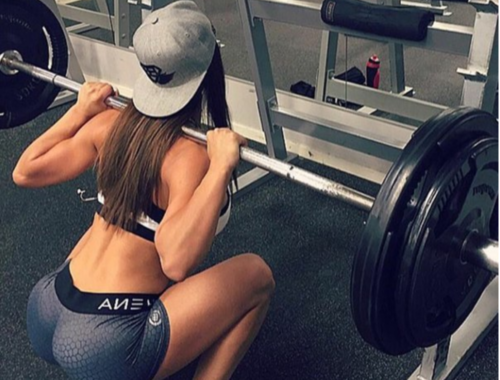
WHAT ARE AMINO ACIDS AND WHAT ARE THEY FOR
Contents
Let’s look at the classification and types of amino acids. We will review the functions of essential and non-essential amino acids and the importance of branched amino acids for athletes.
Without a doubt, all the books and articles about nutrition and supplementation followed by bodybuilders and fitness practitioners always mention the beneficial effect of amino acids.
However, is it true that they are so important for an athlete? Actually, you don’t need to read much to answer these questions, as you only need to take a look at the supplement industry. You will immediately notice that the common ingredients in the best products in the industry, i.e. those that last the longest and work well, are amino acids or a combination of several.
Think for a moment about those days when you take pride in having a good day. Well, the day that these compounds were created was a round day.
In fact, when you digest the protein, the body breaks it down into amino acids and, with these, the system’s own proteins are formed (they produce more than 50,000 proteins and more than 15,000 enzymes in the body, in addition to being involved in many vital organic functions).
There are 23 amino acids, and 10 of them are essential (arginine, histidine, isoleucine, leucine, lysine, methionine, phenylananine, threonine, tryptophan and valine), so the body cannot produce them and you have to ingest them. The others can be synthesized from other amino acids. Therefore, when you opt for one type of protein or another, it is important that you take into account whether you are going to obtain the necessary amount of them. In addition, the balance between essential and non-essential amino acids will determine how quickly they are absorbed. In fact, the amount and speed of absorption is directly proportional to muscle growth.
It is undeniable that one of your main goals is to gain a lot of muscle in the shortest time possible. Therefore, thanks to all the hard work that scientists have done over the years, you can receive the necessary supply of high quality amino acids through supplementation. This fact does not imply, however, that you should not eat high quality protein sources, since you will have to eat a lot of animal meat to gain volume. However, supplementation will help you receive the right amount and type of amino acids to accelerate your muscle building potential. In addition, you will immediately notice that the most effective products are those containing amino acids.

Without a doubt, the most widespread supplement in the bodybuilding world, and consumed by 90% of athletes, is protein powder. However, whey protein powder does not break down into amino acids, although it contains many branched chain amino acids, as it is a combination of the same. Another advantage of whey protein is that it has an abundant amount of peptides, which increase the amount of blood flowing to the muscles and accelerate muscle development. It is quickly digested and effectively absorbed by the body. In fact, on the scale of biodispersibility it is found at the top of chicken, eggs, beef, turkey, milk and cheese. Therefore, if you were to consume 20 grams of whey protein and 20 grams of other protein, more of the 20 grams would be used from the whey, and more quickly. This fact makes it the optimal source of protein for after training.
Whey breaks down quickly, so the body can start rebuilding muscle right away, and it is the king of post-workout nutrition. In that sense, isolates and hydrolysates of serum are most suitable.
Another type of protein powder that comes from milk and is loaded with amino acids is casein protein. Most studies suggest that it is almost as beneficial as whey in accelerating protein synthesis. However, although casein is not as bioavailable as whey, its supply of amino acids makes it a better supplement than whey in terms of speed of digestion, since casein’s is slower, making it a good source of protein for before bed. The progressive digestion of this one favors the reconstruction of the muscle and contributes the concentration of amino acids necessary to carry out the vital functions that take place during the night. In short, if you opt for the serum after training and for the casein before going to bed, the muscles will be at the perfect level of amino acids.
The first two idyllic supplements were composed of enough amino acids to make complete proteins, but the next product only needs three types: do you know which one I mean? A combination of three ingredients has achieved the most effective molecule in bodybuilding: creatine. It is composed of arginine, glycine and methionine. When combined in the body with phosphate, it provides an abundance of ATP that replenishes the energy reserves in the mitochondria, so that a bodybuilder will be able to follow a series when in a normal state he or she would have to give up. It also allows for a faster recovery and consequently less rest between sets. Therefore, the athlete will be able to increase the intensity of his training and obtain considerable gains.
As creatine saturates the muscle, it will need to ingest more water which will combine with the creatine molecules. This causes the volume of the muscle to increase, thus giving it a larger appearance. In fact, the increase in size is one of the main reasons why people go to the gym. However, there is another important reason: muscle strength is directly proportional to the diameter of the arm so, thanks to size, you will gain strength. Consequently, creatine will not only provide you with the energy needed to destroy the gym, but you will also have massive muscles that will help you to lift extreme weights.
Therefore, since creatine intake will cause you to train like a beast, you will force your muscles to work at a higher level of intensity. However, this also has a counterproductive effect, since lactic acid is produced, which is a by-product of the energy transformation process. I am sure you know that when lactic acid forms within the muscle, the pH levels are altered to the point that the muscle can barely contract, and you will experience an uncomfortable burning sensation and find it hard to continue. Creatine fights this process so that you will not feel the accumulated lactic acid and the consequent pain. This is another reason why creatine helps you to maximize the potential of your muscles to grow. One dose just before and after training and you will become a gym monster. Not bad for a product with three amino acids, don’t you think?
On the other hand, glutamine is one of the most abundant amino acids in the body, and is also among the favorite products of bodybuilders. Studies show that even though the body’s concentration is very high, the amount of glutamine can drop by as much as 50% due to weight training.
In addition, this compound is also involved in other systems of the body. Therefore, if you want to train hard and you want to gain a lot of muscle, the concentration of glutamine in your system has to be high to carry out muscle growth and other functions. One of the most important processes involved is protein metabolism so if you do not have full reserves, you will not transform food into muscle.
Just as creatine fights the effect of lactic acid, glutamine fights the effect of cortisol. As you know, this hormone is secreted when the body is subjected to much stress (such as weight training) and causes the degradation of muscle tissue. The amount of cortisol is inversely proportional to the amount of muscle. Therefore, it is demonstrated that glutamine is an extraordinary anti-catabolic agent, since it fights the effects of this catabolic hormone. Consequently, if you do not want to lose all the muscle you have gained through hard work, glutamine must be part of your supplementation program.
As mentioned earlier, glutamine is involved in protein synthesis and therefore helps to speed up muscle development. It also helps to distribute the use of glycogen stored in the muscle tissue, since the amount of glycogen is directly proportional to the energy you will have to lift weights. It also contributes to muscle hydration and consequently you will gain volume and strength. However, it not only distributes the glycogen, but also intervenes in its synthesis as soon as the session is over. This is not a mirage: there is indeed a supplement that increases both protein metabolism and glycogen synthesis. This combination promotes the development of mass, the increase of energy, and you will burn more calories at rest and during training, and you will not accumulate so much fat.
In fact, several studies warn that glutamine supplementation quadruples growth hormone levels. The truth is that it is quite useful for bodybuilders, since this hormone is the most important in terms of muscle growth, fat elimination, and because it works together with other hormones to perform other functions. Therefore, the benefits are countless, since this compound also contributes to the immune system, which protects health and influences how the body uses other hormones.

Do you still doubt the positive effects of glutamine?
On the other hand, products with a nitric acid content are one of the favorites of the bodybuilding industry today. They have a miraculous effect in dilating the blood vessels, so more blood flows into the system.
As a result, you will have more oxygen, nutrients, water, and the hormones will reach the muscle tissue more easily, and the waste products will be removed from the body. The result is extraordinary: charged batteries during training, muscle congestions, and better recovery. Now, maybe you think that nitrogen is not an amino acid, and you are not misguided. However, it’s not nitrogen that makes nitric oxide a miracle formula, but arginine. The body produces nitric oxide by converting L-arginine (an amino acid) into L-citrulline thanks to the synthesis of the enzyme nitric oxide synthase. In other words, if there is no arginine, there is no nitric oxide.
Arginine is also a very powerful antioxidant, so it can destroy harmful free radicals that cause cellular damage in the body that makes it difficult to make a profit. In addition, it also alerts the body to secrete growth hormone, which allows you to develop more muscle and lose more fat.
It maintains low levels of LDL (or bad) cholesterol and stable sodium levels in the body. Sodium is an electrolyte, and if the concentration of this is low, you will experience cramps and the muscles will not work as effectively. On the other hand, if the quantity is excessive, you will retain liquids, which damages the heart and you will have flaccidity.
It is true that lately beta-alanine and carnosine have been getting good press, and this is not surprising, since they are exceptional supplements for bodybuilders.
On the one hand, when beta-alanine is combined with another amino acid known as histidine, carnosine is produced, so it would not exist without beta-alanine. Studies indicate that supplementation of this last component increases carnosine levels much more than supplementation with it, since it is the key element in its development. In fact, muscle tissue already contains a lot of histidine, so only the consumption of beta-alanine is necessary.
We have previously mentioned that the lactic acid that is produced in the muscles causes the pH to drop and, consequently, the muscles cannot contract effectively. In the end, strength and resistance is also lost.
Another fact that occurs is that hydrogen atoms are released and act as free radicals that destroy many elements of the organism. I must say that carnitine is very effective in slowing down the intracellular breakage of molecules caused by hydrogen, which causes a drop in pH. That is why carnosine is so beneficial in maintaining the muscle’s ability to contract while recovering quickly. Studies indicate that if you follow a supplementation program for 10 or 12 weeks you can increase carnosine reserves by up to 60%.
Many trials show that the consumption of beta-alanine and creatine causes a synergistic effect that favors a better functioning of both compounds. For example, if the beta-alanine contributes to you to gain two kilos of muscle and the creatine three, the combination of both will propitiate that you gain more than five. Consequently, if you consume creatine and you like the results you obtain, you can multiply the benefits by adding beta-alanine to your supplementation program. If you want to delay muscle exhaustion so that your muscles contract more strongly for longer (which promotes the development of muscle mass), take beta-alanine.

L-carnitine is the next supplement that comes from the amino acids (lysine and methionine), which throughout its existence has opened several debates. It has become a very popular product among those people who wanted to eliminate the tummy, as it is very effective in transporting fatty acids to the mitochondria to transform them into energy. This compound helps you feel full, and you will not have the need to eat cookies. For many years this product has been used for the treatment of heart diseases, and it enhances the heart’s ability to pump blood and oxygen. Therefore, it is a very valuable supplement to increase your workout capacity when you train, as you will have more blood and oxygen available, as well as convert fat into energy, and increase the level of intensity in the gym.
However, there is a more attractive property for bodybuilders, as it increases the secretion of testosterone. A study of 130 men over 60 with erectile dysfunction showed that L-carnitine can fight the problem more than testosterone undecanate.
This fact led the scientists to the conclusion that this component had positive effects on the hormone. Since then, more studies have been carried out, and one of the best known was that of the Human Performance Laboratory of the University of Connecticut. In a 21-day clinical trial, L-carnitine increased the amount of pre-training androgen receptors compared to the results of the group taking a placebo. Actually, androgen receptors act as intermediaries in the mechanism that free testosterone has in protein synthesis.
In fact, not all the testosterone in the body is used to build muscle tissue. L-carnitine increases the number of available receptors so that a greater amount can be used. An analogous example would be the following: the gas tank of your car has a capacity of 40 liters and if you have to make a car trip every day and you spend 60, you will have to stop at a gas station to refuel. In addition, suppose that the service stations sell a minimum of 60 liters. If you insist on filling up the 60, the gasoline will end up wasted on the floor. However, if the tank was bigger, the car could do more kilometers without having to stop. This same situation can be extrapolated to the testosterone in your body: a quantity of it is wasted, because the body doesn’t have the capacity to use it. If you increase the number of receptors, you will use more testosterone to gain muscle without increasing your body’s hormone concentration. Consequently, L-carnitine helps to transport more free testosterone (the ultimate anabolic hormone) to the muscle cells.
Although I’ve been doing a thesis on amino acids for a while now, I haven’t even mentioned branched chain amino acids (or BCAAs). In this group are leucine, isoleucine, and valine, and they are considered the king of amino acids when it comes to repairing and rebuilding muscle tissue. Although they work synergistically to perform their functions, leucine can stimulate protein synthesis on its own. However, it is advisable that you consume all three for optimal results.
The major benefit of BCAAs is that they are metabolized in muscle tissue rather than in the liver, making them a potential energy pump. When they are degraded in muscle tissue, they provide more ATP than the same amount of glucose. Therefore, they are better at producing muscle energy and allowing muscle recovery.
However, BCAAs have many other beneficial properties: they are the precursors of alanine and glutamine production in the body. In addition, they play a vital role in protein synthesis. During weight training, the body functions with a low concentration of alanine, protein and glutamine. If you want to keep making these elements, it will degrade the muscle tissue to produce more BCAAs. The truth is that this is not very beneficial for people who exercise their butts to win competitions. BCAA supplements in the morning, before and after training, ensure that the concentration of these is high to avoid muscle catabolism. The conservation of the muscle is as important as its increase. What do you think is worse: keeping up the level and not gaining an ounce of muscle, or losing the mass you had? Don’t step back from your training, so I recommend you to take BCAAs to help you produce energy and to develop more muscle.
In conclusion, these are all the benefits of amino acids in bodybuilders: they constitute the building blocks of protein development, and provide a wide range of functions in the body that produce energy, build muscle, combat mass loss, contribute to hormonal development, strengthen the immune system, and eliminate the accumulation of fat, among many other properties. If you include the amino acids in your supplementation program, you will obtain many benefits.

THE SECRET OF ABS & THE SIX PACK
También te puede interesar

THE WHOLE TRUTH ABOUT: FAT AND WEIGHT LOSS
enero 13, 2021
4 REASONS WHY WEIGHT & STRENGTH TRAINING IS BETTER THAN CARDIO
enero 2, 2021
